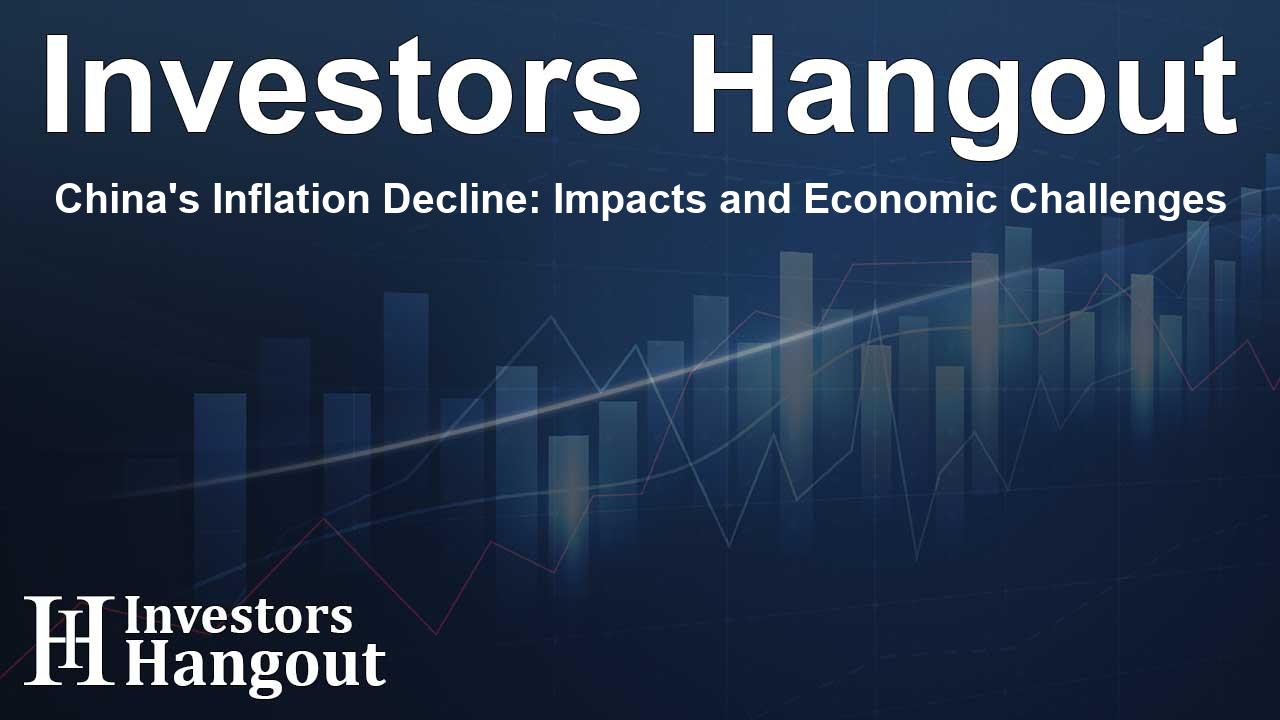China's Inflation Decline: Impacts and Economic Challenges

Understanding China's Recent Inflation Trends
Recent reports indicate that China is experiencing a significant drop in core inflation, marking the lowest levels seen in over three years. This situation has raised alarms regarding the country's economic health, leading economists and policymakers to urge for measures that could enhance household spending. The cooling demand is raising concerns that the nation may struggle to meet its economic growth targets.
Key Inflation Statistics and Consumer Price Index
According to the National Bureau of Statistics, the consumer price index, which excludes the volatile sectors of food and energy, only increased by 0.3% year-over-year, the smallest gain since early 2021. Even with an overall CPI increase of 0.6%, analysts pointed out that this growth was underwhelming, especially in light of rising food prices driven by adverse weather conditions.
Impact of Weak Consumer Demand
The broader context paints a picture of weak consumer demand that could lead to a negative cycle affecting corporate revenues, wages, and overall spending. Michelle Lam, an economist specializing in the Greater China region, warns about the potential onset of a downward price-wage spiral, demanding immediate and robust policy interventions.
Market Reactions and Economic Indicators
In the financial markets, the CSI 300 Index of China's top shares fell 1.1% in early trading, nearing a five-year low, highlighting the prevailing negative sentiment regarding earnings and economic recovery. The onshore yuan and government bond yields remained subdued, reflecting market apprehension.
Deflationary Pressures and Proactive Policy Responses
China is grappling with the longest period of declining prices since 1999, as indicated by the gross domestic product deflator. This situation has led to fierce competition and price wars, notably in sectors like electric vehicles and solar energy, exacerbating the challenges to achieve the country's growth objective of approximately 5%.
Future Projections and Necessary Measures
Experts agree that China must adopt a more proactive fiscal stance to mitigate deflationary expectations. The modest uptick in consumer prices largely stemmed from higher food costs due to adverse weather conditions, such as heat waves and heavy rains. Specific commodities, like fresh vegetables, have seen spikes in prices, further complicating the economic outlook.
Economic Policy Support
Bloomberg Economics suggests that existing efforts, including cash-for-clunkers programs and interest rate cuts, have yet to effectively counteract the profound challenges posed by a faltering housing market and low consumer confidence. Analysts await more supportive actions from policymakers to rejuvenate consumer sentiment.
Industry Insights and Expert Opinions
Former central bank governor Yi Gang emphasized the urgency for policymakers to tackle deflationary conditions, noting the broad-based issues of weak domestic demand, particularly in consumption and investment. Yi expressed hope that the GDP deflator could rebound positively in the coming quarters, although some economists view this as a challenging prospect given current negative sentiment.
Further Rate Cuts on the Horizon?
Analysts predict that the People’s Bank of China may implement further rate cuts and adjustments to the reserve requirement ratio. Such measures could take place as early as September, giving hope for a shift in the economic landscape.
Frequently Asked Questions
What factors are contributing to China's declining inflation?
A combination of weak consumer demand, adverse weather affecting food prices, and a faltering housing market are contributing to the decline in inflation in China.
How is the Chinese government responding to economic challenges?
The Chinese government is urged to adopt a more proactive fiscal approach to stimulate household spending and counteract deflationary pressures.
What are the implications of low consumer confidence?
Low consumer confidence can lead to reduced spending, which further impacts corporate revenues, wages, and overall economic growth.
What products are experiencing noticeable price drops?
Prices for automobiles and communications equipment have experienced significant declines, contributing to overall deflation concerns.
What is the expected monetary policy trajectory in China?
Experts anticipate potential rate cuts and adjustments in reserve requirements from the People's Bank of China to stimulate economic activity in the near future.
About Investors Hangout
Investors Hangout is a leading online stock forum for financial discussion and learning, offering a wide range of free tools and resources. It draws in traders of all levels, who exchange market knowledge, investigate trading tactics, and keep an eye on industry developments in real time. Featuring financial articles, stock message boards, quotes, charts, company profiles, and live news updates. Through cooperative learning and a wealth of informational resources, it helps users from novices creating their first portfolios to experts honing their techniques. Join Investors Hangout today: https://investorshangout.com/
Disclaimer: The content of this article is solely for general informational purposes only; it does not represent legal, financial, or investment advice. Investors Hangout does not offer financial advice; the author is not a licensed financial advisor. Consult a qualified advisor before making any financial or investment decisions based on this article. The author's interpretation of publicly available data shapes the opinions presented here; as a result, they should not be taken as advice to purchase, sell, or hold any securities mentioned or any other investments. The author does not guarantee the accuracy, completeness, or timeliness of any material, providing it "as is." Information and market conditions may change; past performance is not indicative of future outcomes. If any of the material offered here is inaccurate, please contact us for corrections.